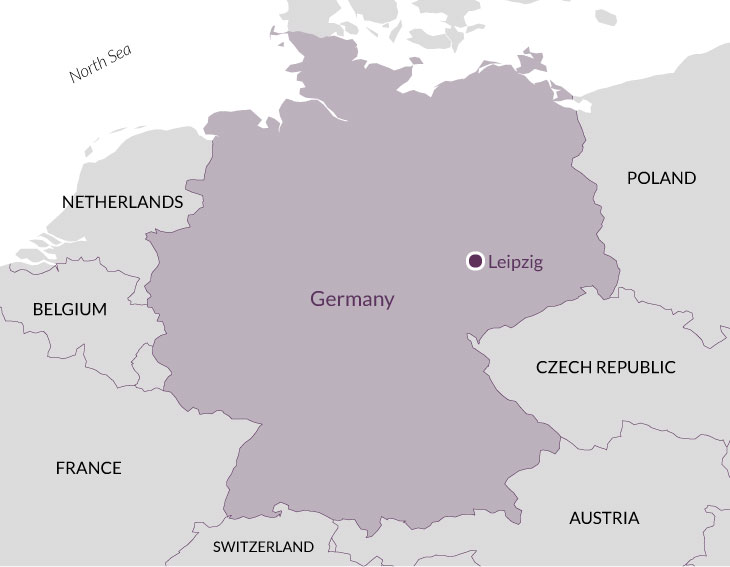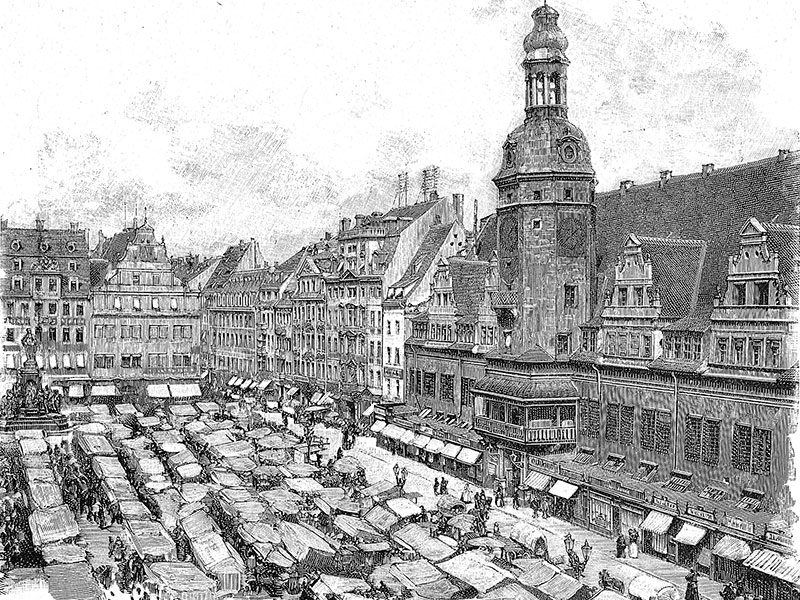Overview
It is fair to say that Der Ring des Nibelungen, the greatest achievement of a composer who probably influenced the course of music more than any other, occupies a unique place in musical history. Indeed, some would claim the Ring to be the mightiest single achievement in the history of Western art.
Wagner believed in the power of myth, and the Ring is timeless – it is of course about more than the giants, gods, dwarfs and humans it portrays, and has been interpreted in many different ways. While on one hand it seems to be a warning against the abuse and retention of power in which love ultimately triumphs, on the other hand it has been taken as a manifesto for German nationalism and unsavoury racial views. The Ring has also been viewed on the industrialization of Wagner’s time, a warning against ecological disaster, as a socialist allegory, even in terms of Jungian psychology – all of which testifies to the fascination it holds over people.
However it is interpreted – the production at Oper Leipzig is by the English-born, German-trained choreographer and director Rosamund Gilmore – there is a special frisson in experiencing Wagner in the city of his birth. Many great composers have had associations with the Saxon city, but Leipzig has made a special effort to reclaim Wagner. In 2013, the bicentenary of his birth, its slogan was ‘Richard ist Leipziger’. And although Wagner pilgrims will find no birth-house (it was knocked down just three years after his death), Leipzig is the city of many projects connected with the composer, including the founding of the first Wagner Society (1909), now a worldwide phenomenon. Leipzig was also the first place – after Bayreuth – to see a complete Ring, in 1878, just two years after the cycle had been premiered at Wagner’s own Festspielhaus.
The musical history of Leipzig encompasses not only Wagner but also Strauss, J.S. Bach, Telemann, Robert and Clara Schumann, Mendelssohn, and Mahler. Morning walks and visits investigate this heritage, and also take in the art and architecture of the city.
Leipzig is now, again, a handsome and lively city, following an almost miraculous transformation during the 1990s and beyond. Cleaning, restoration and rebuilding went hand in hand with the emergence of cafés, smart shops and good restaurants. There are excellent museums, including the Fine Arts Museum in spectacular new premises, the radically refurbished Museum of Musical Instruments and the Bach Museum.
Day 1
Fly at c. 10.50am from London Heathrow airport to Berlin (British Airways). Drive to Leipzig. Dinner in the hotel.
Day 2
A morning lecture is followed by a guided walk around the city centre, including the Marketplace and Old City Hall, Stock Exchange and the churches of St Nicholas and St Thomas (where J.S. Bach was choir master). The tour ends at the Bach Museum. Free afternoon. The Fine Arts Museum has a good collection of European Old Masters in a striking new building. Leipzig Opera House, 5.00pm: Das Rheingold: Ulf Schirmer (conductor), Rosamund Gilmore (director), Karin Lovelius (Fricka), Gal James (Freia), Magdalena Hinterdobler (Woglinde), Sandra Maxheimer (Wellgunde), Sandra Fechner (Flosshilde), Tuomas Pursio (Wotan), Anooshah Golesorkhi (Donner), Sven Hjörleisson (Froh), Thomas Mohr (Loge), Sebastian Pilgrim (Fasolt) James Moellenhoff (Fafner), Dan Karlström (Mime).
Day 3
A second walk concentrating on Leipzig’s musical heritage includes Haus zum Roten und Weißen Löwen (site of Wagner’s birth house), the Gewandhaus (concert hall), opera house and the Wagner memorial. Leipzig Opera House, 5.00pm: Die Walküre: Ulf Schirmer (conductor), Rosamund Gilmore (director), Meagan Miller (Sieglinde), Christiane Libor (Brünnhilde), Karin Lovelius (Fricka), Gal James (Gerhilde), Magdalena Hinterdobler (Ortlinde), Monica Mascus (Waltraute), Sandra Janke (Schwertleite), Daniela Köhler (Helmwige), Sandra Maxheimer (Sigrune), Marta Herman (Grimgerde), Christiane Döcker (Rossweisse), Robert Dean Smith (Siegmund), Randall Jakobsh (Hunding), Simon Neal (Wotan), Ziv Frenkel (Grane).
Day 4
Halle. All-day excursion to Halle, another historic trading town, and the birthplace of Handel. At its centre is the Marktkirche, an outstandingly beautiful example of the very last phase of Gothic, with coevil paintings and furnishings. After lunch visit the Handel Museum which documents his life before returning to Leipzig for an independent evening.
Day 5
Morning visit to the Grassi Museum for a guided tour of the collection of musical instruments, one of the most important of its kind in the world, and the museum of decorative arts. Leipzig Opera House, 5.00pm: Siegfried: Ulf Schirmer (conductor), Rosamund Gilmore (director), Elisabet Strid (Brünnhilde), Bianca Tognocchi (the voice of the forest bird), Stefan Vinke (Siegfried), Dan Karlström (Mime), Simon Neal (The Wanderer), Tuomos Pursio (Alberich), Randall Jakobsh (Fafner).
Day 6
There is a free morning for further independent exploration of the city. Possible visits include the Bach Archive, which has a good public display. Leipzig Opera House, 5.00pm: Götterdämmerung: Ulf Schirmer (conductor), Rosamund Gilmore (director), Christiane Libor (Brünnhilde), Gal James (Gutrune), Karin Lovelius (Waltraute), Magdalena Hinterdobler (Woglinde), Sandra Maxheimer (Wellgunde), Sandra Janke (Flosshilde), Thomas Mohr (Siegfried), Tuomas Pursio (Gunther), Sebastian Pilgrim (Hagen).
Day 7
Fly from Berlin to London Heathrow airport, arriving c. 3.30pm.
Price, per person
Two sharing: £3,270 or £3,090 without flights. Single occupancy: £3,760 or £3,580 without flights.
Included
Air travel (Euro Traveller) on British Airways flights (Airbus A320); private coach for transfers; accommodation as described below; breakfasts, 1 lunch and 3 dinners with wine as well as interval finger food and drinks at 3 performances; admission to museums, etc.; all tips for waiters, drivers and local guides; all taxes; the services of the lecturer and a tour manager.
Music
4 opera tickets (first category) are included.
Accommodation
Hotel Fürstenhof, the finest hotel in the city, yet not large and with the feel of a discreet private club. A converted 19th-century building, it is furnished throughout with antique furniture. Situated just outside the line of the medieval walls, the hotel is a 20-minute walk from the Opera House. Single rooms are doubles for sole use.
How strenuous?
Vehicular access is restricted in the city centre and participants are expected to walk to the opera house. Average distance by coach per day: 45 miles (although only on the first and last days of the tour between Leipzig and Berlin Tegel airport and on day 4 for the excursion to Halle).
Are you fit enough to join the tour?
Group size
Between 10 and 22 participants.
Travel advice
Before booking, please refer to the FCDO website to ensure you are happy with the travel advice for the destination(s) you are visiting.

'If there were a higher category than excellent I would have selected it. Excellent double plus good.'
'A marvelous trip all round.'
'[The lecturer was] tireless and attentive in all the practical matters of the tour and endlessly informative and entertaining on our walks around the town.'
